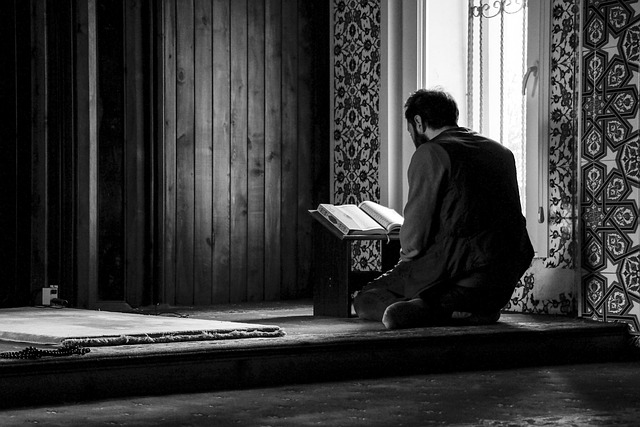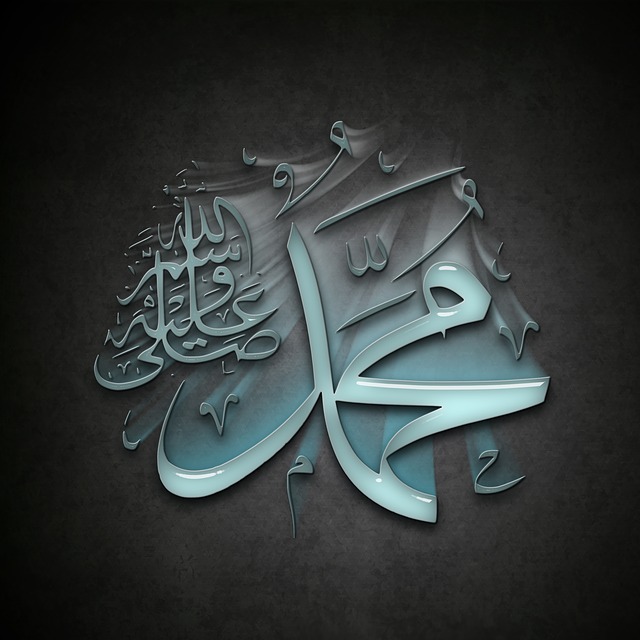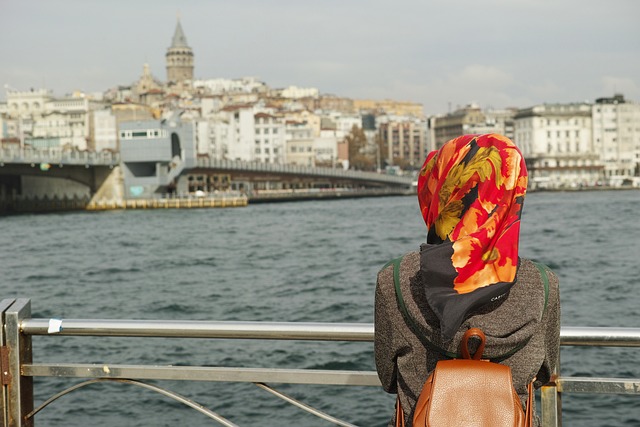Míthuiscintí a imréiteach
Bacinní a bhriseadh
Comhtháthuí a chur chur cinn
Clearing up misunderstandings
Breaking barriers
Promoting integration
W E L C O M E
Kerry Islamic out reach society has been primarily set up for clearing misconceptions, integrating with the community and to promote inter faith dialogues in order to break the rumours about Islam by providing authentic evidence based information.
Our aim is to bring all communities together with mututal respect and help the most needy of the community ie elderly and children as per commanded in Islam.

God in Islam
Muslims often refer to God as Allah.
This is a universal name for God and does not refer to an exclusively ‘Islamic’ God. Interestingly, this name is related to the Aramaic and Hebrew names for God, Allaha and Elohim. Therefore, Allah is simply the Arabic name for God which affirms that He is One singular God with no partners or equals. The name Allah cannot be pluralized or limited to a specific gender, which establishes that God is One and that He is unique from everything He creates. Muslims continue to use this original Arabic name for God (Allah) since it perfectly expresses His unique qualities.
Belief in one God, is the most important and foundational concept in Islam.Muslims believe in one God who created the universe and has power over everything within it. He is unique and exalted above everything He creates, and His greatness cannot be compared to His creation.
God is the Creator and the Sustainer of the universe who created everything for a reason. Muslims believe that He created humankind with a simple purpose – to worship Him. He sent messengers to guide people in fulfilling this purpose. Some of these messengers include Adam, Noah, Abraham, Moses, Jesus, and Muhammad, peace be upon all of them. They all taught a consistent message about God by affirming His greatness as the Creator and guiding people to worship Him alone. This basic concept has always resonated with people’s natural understanding of God.
When the final prophet, Muhammad, peace be upon him (pbuh), was asked about God, the answer came directly from God in the holy book of Muslims, the Quran (also spelled ‘Koran’): “Say, ‘He is God the One, God the eternal. He begot no one nor was He begotten. No one is comparable to Him.’” [112:1-4] This is a clear statement by God describing Himself to humanity without any room for confusion. God is One and is exalted above everything He creates and He is capable over all things.

Prophet in islam
Islam is the culmination of the universal message of God taught by all of His prophets. Muslims believe that a prophet was chosen for every nation at some point in their history, enjoining them to worship God alone and delivering guidance on how to live peacefully with others. Some of the prophets of God include Adam, Noah, Abraham, Ishmael, Isaac, Jacob, Joseph, Moses, Jesus, and Muhammad, peace be upon them all. The prophets all conveyed the consistent divine message of worshiping one God, along with specific societal laws for each nation’s circumstances.
However, after the prophets delivered the divine guidance to their people, their message was lost, abandoned, or changed over time, with only parts of the original message intact. God then sent another prophet to rectify their beliefs. In order to restore the correct guidance.
However, after the prophets delivered the divine guidance to their people, their message was lost, abandoned, or changed over time, with only parts of the original message intact. God then sent another prophet to rectify their beliefs. In order to restore the original call of all prophets, God sent Muhammad, peace be upon him (pbuh), as the final prophet to all of humanity in the 7th century C.E.
In 610 C.E., Angel Gabriel visited Muhammad (pbuh) with the first divine message. For the next 23 years, he continued to receive revelations until the message was completed. Muhammad (pbuh) called people towards the belief in one God and encouraged them to be just and merciful to one another. He was a living example of God’s guidance for the benefit of the entire humankind.
“Then We revealed to you [Muhammad], ‘Follow the creed of Abraham, a man of pure faith who was not an idolater.’”
(Quran, 16:123)
The Words of Allah

women in Islam
In the Islamic society the woman has an honored position and, beside her legal and civil rights, enjoys special respect, love, affection and the gentle feelings which she deserves most.Islam acknowledged women's equality with men in a great many respects.
The Quran states:"And among His signs is this: that He created mates for you from yourselves that you may find rest and peace of mind in them, and He ordained between you love and mercy. Certainly, herein indeed are signs for people who reflect." [Noble Quran 30:21]
Muslims believe that Adam and Eve were created from the same soul. Both were equally guilty of their sin and fall from grace, and Allah forgave both. Many women in Islam have had high status; consider the fact that the first person to convert to Islam was Khadijah, the wife of Muhammad, whom he both loved and respected. His favorite wife after Khadijah's death, Ayshah, became renowned as a scholar and one of the greatest sources of Hadith literature. Many of the female Companions accomplished great deeds and achieved fame, and throughout Islamic history there have been famous and influential scholars and jurists.
The right of females to seek knowledge is not different from that of males. Prophet Muhammad (peace and blessings be upon him) said:
"Seeking knowledge is mandatory for every Muslim". [Al-Bayhaqi]
According to Islamic Law, women cannot be forced to marry anyone without their consent.
Ibn 'Abbas reported that a girl came to the Messenger of God, Muhammad (peace and blessings be upon him), and she reported that her father had forced her to marry without her consent. The Messenger of God gave her the choice... (between accepting the marriage or invalidating it). [IbnHanbal No. 2469]
The rules for married life
The rules for married life in Islam are clear and in harmony with upright human nature.In consideration of the physiological and psychological make-up of man and woman, both have equal rights and claims on one another, except for one responsibility, that of leadership. This is a matter which is natural in any collective life and which is consistent with the nature of man.
The Quran thus states:
"...And they (women) have rights similar to those (of men) over them, and men are a degree above them." [Noble Quran 2:228]
Prophet Muhammad (peace and blessings be upon him) said:
"The best of you is the best to his family and I am the best among you to my family."
The most perfect believers are the best in conduct and best of you are those who are best to their wives. [Ibn-Hanbal, No. 7396]
Behold, many women came to Muhammad's wives complaining against their husbands (because they beat them) - - those (husbands) are not the best of you.
A man came to Prophet Muhammad (peace and blessings be upon him) asking:
O Messenger of God, who among the people is the most worthy of my good company? The Prophet (peace and blessings be upon him) said, Your mother. The man said then who else: The Prophet (peace and blessings be upon him) said, Your mother. The man asked, Then who else? The Prophet (peace and blessings be upon him) said, Your mother. The man asked, Then who else? Only then did the Prophet (peace and blessings be upon him) say, Your father. [Al-Bukhari and Muslim]
Woman's right to seek employment:
With regard to the woman's right to seek employment it should be stated first that Islam regards her role in society as a mother and a wife as the most sacred and essential one. Neither maids nor baby-sitters can possibly take the mother's place as the educator of an upright, complex free, and carefully-reared children. Such a noble and vital role, which largely shapes the future of nations, cannot be regarded as "idleness".
However,there is no decree in Islam which forbids woman from seeking employment whenever there is a necessity for it, especially in positions which fit her nature and in which society needs her most. Examples of these professions are nursing, teaching (especially for children), and medicine. Moreover, there is no restriction on benefiting from woman's exceptional talent in any field. Even for the position of a judge, where there may be a tendency to doubt the woman's fitness for the post due to her more emotional nature, we find early Muslim scholars such as Abu-Hanifah and At-Tabari holding there is nothing wrong with it. In addition, Islam restored to woman the right of inheritance, after she herself was an object of inheritance in some cultures. Her share is completely hers and no one can make any claim on it, including her father and her husband.
Woman's equality with man:
Any fair investigation of the teachings of Islam into the history of the Islamic civilization will surely find a clear evidence of woman's equality with man in what we call today "political rights".
Woman's right of election
This includes the right of election as well as the nomination to political offices. It also includes woman's right to participate in public affairs. Both in the Quran and in Islamic history we find examples of women who participated in serious discussions and argued even with the Prophet (peace and blessings be upon him) himself (see the Noble Quran 58:14 and 60:10-12).







